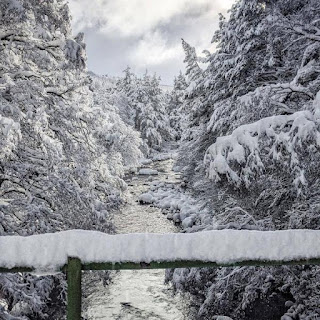What is CKD
WHAT IS CKD
Chronic Kidney Disease in found more in women 14%, than men 12%
Many of us are what you would call normal, got a good
healthy weight.. eat healthy, have very busy lives, carrying on normal daily
routines of work, picking up groceries, doing laundry and just living then
Boom…when we attend our GP, end up at Accident and Emergency we are told that
our Kidney are not fully functioning as it should be.
Many people with chronic kidney disease (CKD) will not have
symptoms because it does not usually cause problems until it reaches an
advanced stage.
Early stage of CKD is not normally picked up unless blood tests are done routin
ely and it may be been prevented or slowed done, medicine and regular tests to monitor it may help stop it becoming more advanced.
Later Symptoms can include:
1. weight loss and poor appetite
2. swollen ankles, feet or hands – as a result of water
retention (oedema)
3. shortness of breath
4. tiredness
5. blood in your pee (urine)
6. an increased need to pee – particularly at night
7. difficulty sleeping (insomnia)
8. itchy skin
9. muscle cramps
10. feeling sick
11. headaches
12. erectile dysfunction in men
In many cases, CKD is only found when a routine blood or
urine test you have for another problem shows that your kidneys may not be
working normally.
A few things to look out for, if you have persistent symptoms of CKD, such
as:
·
weight loss or poor appetite
·
swollen ankles, feet or hands
·
shortness of breath
·
tiredness
·
blood in your pee (urine)
·
peeing more than usual, particularly at night
·
Your GP can look for other possible causes and
arrange tests if necessary.
Regular testing is recommended if you have:
Ø
high blood pressure
Ø
diabetes
Ø
acute kidney injury – sudden damage to the
kidneys that causes them to stop working properly
Ø
cardiovascular disease – conditions that affect
the heart, arteries and veins, such as coronary heart disease or heart failure
Ø
other conditions that can affect the kidneys –
such as kidney stones, an enlarged prostate or lupus
Ø
a family history of advanced CKD or an inherited
kidney disease
Ø
protein or blood in your urine where there's no
known cause
You're also more likely to develop kidney disease if you're
black or of south Asian origin.
I am not saying that other races do not get it but it really
in the minority backgrounds
My diagnoses was identified by having fluid present in my abdomen
whilst at work when I was 26 years old. I was stage 2 with Kidney disease with as
well as one of CKD’s most common but severe complications, anaemia.
14 years after the initial diagnosis, I progressed to
end-stage renal failure where the only treatment at the time was a transplant.
I was offered a transplant from my lovely husband “I was
really shocked as I didn’t feel that I was there yet. The transplant failed in 2007 soon after
surgery, I have been on haemodialysis and is now a home patient utilising
nocturnal dialysis as my treatment of care.
So the purpose of setting up this business is because during
the last 10 years of being on dialysis and going on holiday with a mobility
issue I have experienced a few things.
My Trust changed the way we book holidays, we used to have a
coordinator that did all the holiday bookings,
Then we were told that we need to do our own holiday
bookings and the nurse will complete the form and give you a copy and send the
form across and everything else is left up to you
Sometimes it can be quite stressful because you have to
contact the Dialysis unit first and then find your holiday your flights and
your transfers.
I have used other agencies and they that found the booking dialysis unit and was difficult and it took forever and when
they found the unit.
I no longer had the holiday booking, therefore I no longer
needed to attend the dialysis unit or even book the holiday because it no
longer met my need.
Because of these experiences and speaking to others, I
thought I want to help to take the strain and stress from kidney and mobility
patients/clients and handle the complete process and more.
I love travelling and
encourage all Kidney patients to travel.
Have you ever been to Aberdeen? What do you know about
Aberdeen. The name given to Aberdeen translates as 'mouth of the river Don',
and is recorded as Aberdon in 1172 and Aberden in c. 1180. It is the third largest
city in Scotland. Aberdeen is historically known for its strong ties with the
North Sea.
Boasting notable fishing and shipping industries as well as
a lively cultural scene. Aberdeenshire stretches from “one of the last great
places on earth” (the Cairngorms) to “one of the world’s top-rated coastlines”.
So says National Geographic. And The Scotsman (one of Scotland’s national
newspapers) calls its city of Aberdeen – where ships dock right up against the
city-centre streets and dolphins leap in the busy North Sea harbour – “one of
the most architecturally distinctive in Europe”.
It is a compact city with wide open spaces; walk along a
mile long stretch of golden beach (you may even spot dolphins playing in the
harbour mouth) and admire the sparkling granite architecture that we are so
famous for. Step back in time in Aberdeen's old town as you visit the cobbled
roads and historic buildings in Old Aberdeen, or stay in the heart of a
bustling city with a vibrant foodie scene - including big names like Mackie's
and BrewDog.
Perhaps it’s somewhere
to visit here in the UK this year.
#aberdeen #kidneypatient #holiday #ckd #scotland #diaylsis #transplant



Comments
Post a Comment